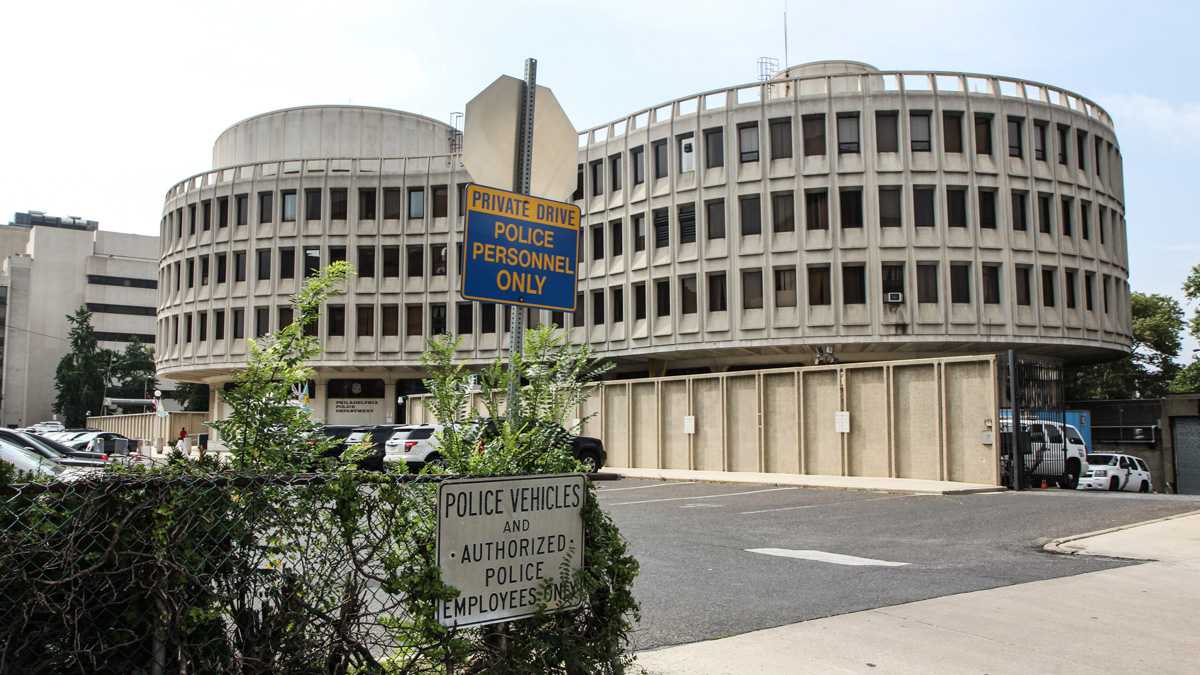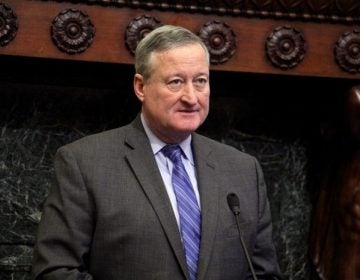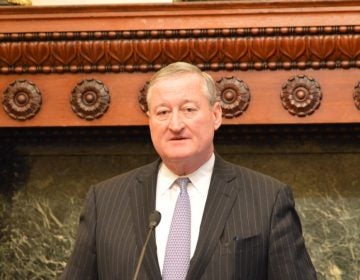Listen to police; they need sanctuary policies, too

Philadelphia Police Department headquarters at 7th and Race streets (Kimberly Paynter/WHYY
Mayor Kenney’s announcement to uphold our “sanctuary city” status is a strong stand for local law enforcement. For those not swayed by the social justice argument, I present testimony from police.
Mayor Kenney has joined mayors and governors around the country to publicly defend Philadelphia against burdensome and distracting implementation of federal immigration policies. Kenney’s announcement to uphold our “sanctuary city” status is a strong stand for local law enforcement in the face of President-elect Trump’s hamfisted threat to withhold federal funds from municipalities grappling with a charged and controversial issue. For those not swayed by the social justice argument for sanctuary cities (as I am), I present testimony from police.
While there is no strict legal definition, in Philadelphia being a “sanctuary city” means local officers do not ask arrestees about immigration status, and will not detain them on behalf of Immigration and Customs Enforcement agents unless they can provide a warrant.
Critics fear that these community policing efforts protect criminals and veil Democratic politicians’ pandering to immigrant voting blocs and the “oversensitive” communities that sympathize with them. In reality, cities with sanctuary policies fully enforce the law when undocumented immigrants commit other crimes, and local police say that undue responsibility for federal immigration hinders their work.
Detaining arrestees for indefinite periods of time diverts efforts and funds from law enforcement’s major priority: fighting and preventing crime. The funds required to enforce federal immigration policy strains police budgets. “When that happens, we [are] robbing our communities of the police response that they deserve,” said Police Chief Victor Rodriguez from McCallen, Texas, in a Police Executive Research Forum study. The Law Enforcement Immigration Task Force agrees. Not to mention that police districts become vulnerable to litigation if they hold someone without cause — something on which Pa. State Rep. Martina White wants to double down.
Police fear the impact of immigration policy enforcement on their hard-won relationships with the communities they work in. Champions point out that sanctuary policies promote the trust that undocumented immigrants need to report crime. Police chiefs agree, and go a step further: Relationships with documented immigrant communities are at risk, as well as officers’ ability to identify and prevent crime targeting immigrants.
Former Raleigh, N.C., Police Chief Harry Dolan says that immigrants are “preyed upon because there are criminals who think that they are not going to report the crime. But we do have a lot of immigrants reporting crime and a lot of perpetrators going to jail because of that.” (For those who think “soft on crime” when they hear “community policing,” listen to what the Department of Justice and Police Magazine say about its impact and how to make it work.)
Enforcing a controversial federal policy also passes the buck on immigration reform; if local law enforcement is tasked with rounding up undocumented immigrants, lawmakers may feel less urgency to enact meaningful change. Immigrants, documented or not, already live under and must abide by the same laws as citizens. Cities with sanctuary policies still prosecute, convict, and imprison immigrants who break the law. They also do not prevent ICE from apprehending high-profile offenders. They simply hold ICE to the same constitutional requirements as other law enforcement and prevent the burden of federal policy from being unfairly placed on the shoulders of local police.
—
Emily Sadler lives in West Philadelphia.
WHYY is your source for fact-based, in-depth journalism and information. As a nonprofit organization, we rely on financial support from readers like you. Please give today.



